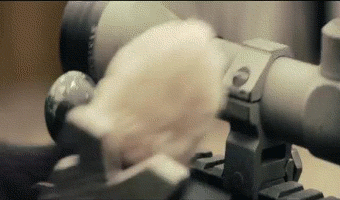In the world of bleeding disorders, Factor VII deficiency could be considered the “runt of the litter.” And in the “dog eat dog world” of chasing research dollars, it’s a lot harder to “sniff out” funding to find a treatment for a disease that effects only a tiny population.
Some would say that’s…a “doggone” shame.
(I’m almost done, I promise) But that may be changing thanks to researchers from the University of North Carolina and The Children’s Hospital of Philadelphia.They are… wait for it…

So, what in Dog’s name does that have to do with our four-legged friends?
Simple. While inherited Factor VII Deficiency is very rare in human births, it’s much more frequent in certain dog populations—which makes them the perfect guinea, er, pigs for a gene therapy technique which, if approved in humans, could reduce the need for Factor VII deficiency treatment to ONE injection.

Here’s how it works, and how dogs helped pave the way: Researchers cloned the factor VII gene in dogs, and then bundled the genes into an adeno-associated virus (AAV) vector—which is a virus that’s been made harmless (think of it as genetic obedience training) so that it can act as a sort of biological delivery vehicle. Four dogs were given different levels of Factor VII genes and were monitored over a three-year period.

The results? The therapy helped kick-start production of the dogs’ factor VII and effectively “cured” the disease, even when given in amounts roughly equivalent to the maximum dose a human could take without risking an immune response.
As the lead researcher on the Children’s Hospital side pointed out, that’s enough to make a good argument for starting human trials of the treatment.
Until that happens—and until a treatment reaches the market—Factor VII deficiency patients will have to continue regular factor injections and be careful to avoid bleeds. But in the future, this could be HUGE, especially for people who aren’t able to afford or access regular treatments (think of people in developing countries who can’t physically get to a hospital or treatment center on short notice). And when that happens, we can be a little thankful for science going to the dogs.

Head here to read more about the study results, then check out some of the other research being done at UNC and CHOP.


